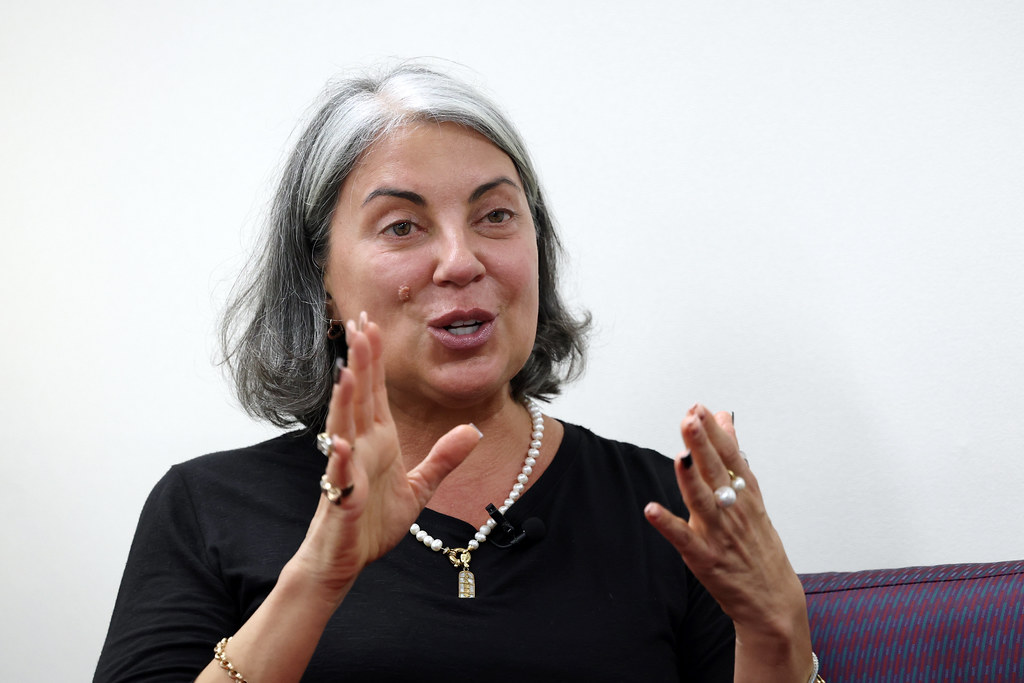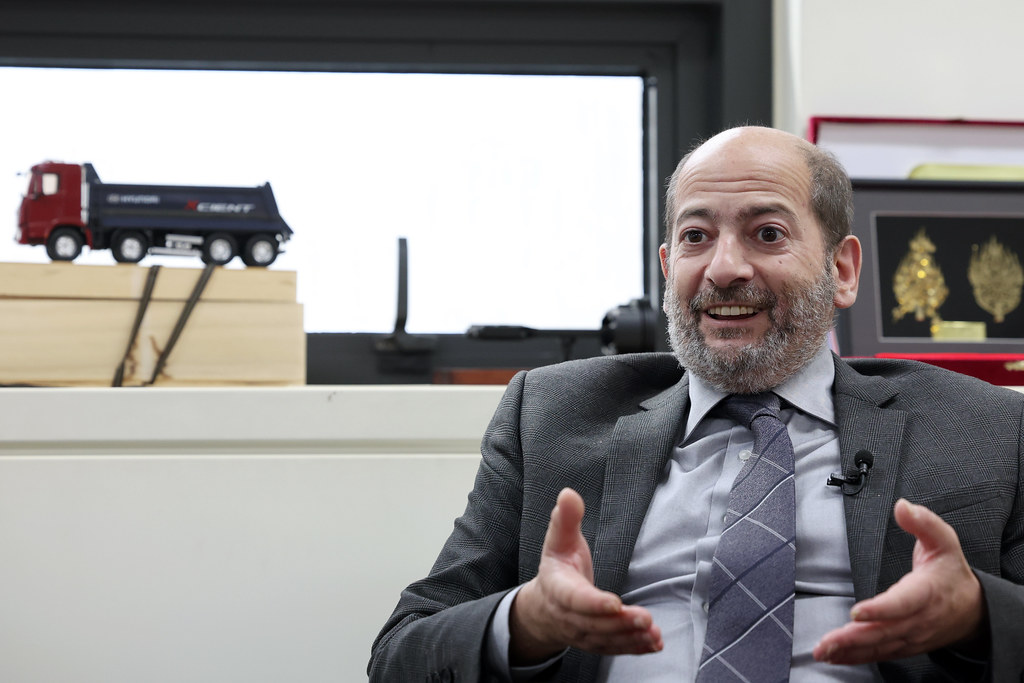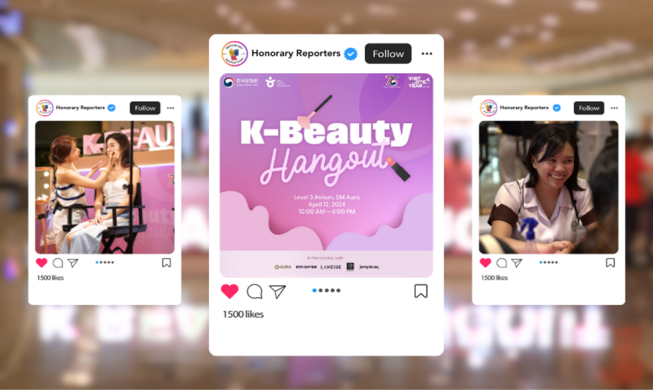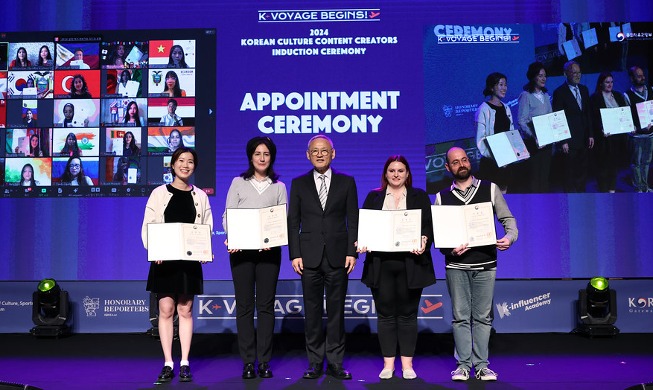-
 Korea.net's 24-hour YouTube channel
Korea.net's 24-hour YouTube channel- NEWS FOCUS
- ABOUT KOREA
- EVENTS
- RESOURCES
- GOVERNMENT
- ABOUT US
- 한국어
- English
- 日本語
- 中文
- العربية
- Español
- Français
- Deutsch
- Pусский
- Tiếng Việt
- Indonesian
By Kim Hyelin
Photos = Jeon Han
"I thought that designating a day that celebrates food so closely related to Korean identity would be a way to honor the Korean community in Argentina in a meaningful manner."
Former Argentine Sen. Magdalena Solari Quintana, who led the effort to make her country the world's first to officially declare Kimchi Day, said this during her recent visit to Korea.
A Korean culture enthusiast, Solari Quintana held consultations with the Korean Cultural Center (KCC) in Buenos Aires to propose a resolution in July 2021 to officially designate Kimchi Day every year on Nov. 22.
Thanks to her passion and efforts to promote the food, the Argentine Senate and Chamber of Deputies both passed the resolution three years after she proposed it.
The resolution described the history and excellence of kimchi and mentioned that kimjang, or the process and culture of preparing and preserving kimchi, was designated a UNESCO Intangible Cultural Heritage in 2013.
Though states or cities abroad declared Kimchi Day earlier, Argentina was the first country to do so at the national level.

Former Argentine Senator Magdalena Solari Quintana on April 8 gives the background for her country's official designation of Kimchi Day in an interview with Korea.net at the Argentine Embassy in Seoul's Yongsan-gu District.
In a Korea.net interview on April 8 at the Argentine Embassy in Seoul, Solari Quintana noted the positive effects on the resolution's passage from the Korean community's integration in Argentina over the past 60 years and the rising status of Hallyu (Korean Wave) in the country.
"Anyone who's studied in Buenos Aires has at least one Korean friend," Argentine Ambassador to Korea Emiliano Waiselfisz said. "For Argentinians, Korean culture is not something that exists only in the media but a culture that they closely access in their lives."
Below are excerpts from the interview.
You made kimchi in Korea after arriving here. How was it?
Back in Argentina, I'd only made kimchi with cabbage precut into slices. I guess that's why learning to make it the traditional way of wrapping cabbage leaves was a truly special and meaningful experience. We also visited a kimchi plant after making it.
I was impressed by how the staff paid extra attention to cleanliness and sanitation and how they did their best in their respective tasks. Above all, I loved tasting not only cabbage kimchi, but also kimchi with other vegetables such as tomatoes and onions. By making kimchi and visiting the factory, I could feel Koreans' affection and respect for the food.
What is your favorite type of kimchi? Describe your personal experience with it.
It's really hard to pick just one as my favorite. All the types I tried such as cabbage, radish and young summer radish each have a distinct and unique flavor and tastes good.
I discovered kimchi through Korean movies and dramas. I later befriended a Korean who lived near my home, and after trying the kimchi that his father from Busan made, I was immediately captivated by the flavor. I eventually grew interested in Korean culture, so I contacted the KCC and attended Hansik (traditional food) events, where I tried a variety of and learned more about kimchi.
Why did you decide to push for the official designation of Kimchi Day?
It was an effort to meaningfully respect the Korean community in Argentina ahead of the 60th anniversary of bilateral ties. Instead of designating a separate day for the Korean community or immigrants in Argentina, I thought that celebrating kimchi, the super food of all Koreans, showed more genuine respect for the culture.
I believe that kimchi is inseparable from the Korean identity. It may be difficult to explain to those who don't know that kimchi is the cultural essence of Korean immigrants, but I consider it a very crucial element in understanding the Korean community.
How did Argentine society respond to the resolution process?
The day I proposed the resolution was when the National Congress held its first in-person session for the first time since the COVID-19 pandemic. It naturally gained much media attention as all news outlets gave it heavy coverage, thus promoting public interest in kimchi.
Argentinians were curious over what kimchi was, and a flood of articles came out about kimchi and Korean food. This led to more customers at Korean restaurants and more trying the food, with the number of Korean restaurants gradually expanding.
You were named global kimchi ambassador early this month by the Korea Agro-Fisheries and Food Trade Corp. What will you do in this role?
We need many inspections to mass produce high-quality kimchi in Argentina. Strict health criteria must also be met. We expect a challenging and time-consuming process. I plan to start contacting relevant organizations after returning home.
Along with this process, I will hold a campaign to promote awareness in Argentina of the health benefits of fermented food and spread kimchi's appeal.
Any concluding message for Korea.net readers?
I'm certain that those who love Korean culture will continue eating kimchi. So rather than advising them to eat kimchi, I want them to learn more about Korean culture, communicate with one another and discover new things. This is because through interaction, we can express what we have and share our different lifestyles.

Argentine Ambassador to Korea Emiliano Waiselfisz on April 8 gives an interview to Korea.net at his embassy in Seoul's Yongsan-gu District, saying, "The designation of Kimchi Day became an opportunity for the people of Korea and Argentina to more deeply understand each other's existence and importance as well as bilateral relations."













